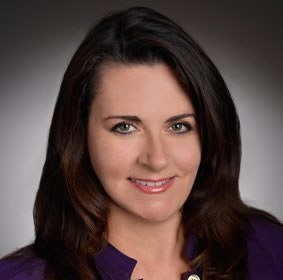Donna Weiss
"Improving cancer outcomes is one of the major issues in our lifetime. We can only address it if we harness the input of so many different experts and so many different fields. The way that the cancer center is set up, it’s doing that."

Donna Weiss has been philanthropically involved at the University of Michigan for more than 15 years. She is the founding chairman and remains a director of Communities In Schools of Los Angeles. From 2001 to 2008, Donna was a managing director of Midstream Partners, L.L.C., a private equity firm which makes equity investments in, and provides advisory services to, small and midsize oil and gas companies. Prior to joining Midstream, she was an attorney at Skadden, Arps, Slate, Meagher & Flom L.L.P., where she specialized in international project finance transactions. In addition to her work with the University of Michigan, Donna serves on the boards of Communities In Schools, Brown University President’s Leadership Council and Women’s Leadership Council. She holds a law degree from Harvard University and a bachelor’s degree with honors from Brown University.
Describe your interest in the Rogel Cancer Center. What drew you to being on the National Advisory Board?
I want to help Michigan to harness all of its unique talents and highlight them. I’m particularly interested in the bench-to-bedside piece, really focusing on how all the tremendous research done at this university can most quickly and efficiently impact outcomes for cancer patients -- and transform not just the cancer care in Michigan, but nationally.
What are your hopes for what the Rogel Cancer Center can accomplish in the next decade?
I’d love to see continued investment and focus on research, especially this collaborative culture that is so prevalent at U-M. Let’s continue to bring together these amazing scholars within the university. We can also provide more equitable access to excellent care in cancer, both in diagnosis and prevention as well as care. There are also opportunities to educate underserved communities about cancer screenings, as well as prevention and health care in general. There are so many inequities. That’s another role the cancer center can serve: helping to limit the inequities of environment and care.
How do you envision the National Advisory Board contributing to that success?
As a board member, I can provide that lay person’s perspective to the Cancer Center’s senior leadership. We are learning about the research and the patient experience so that we can advise holistically, as well as in supporting fundraising. We as a board can help figure out how the cancer center can take advantage of the many people who want to support U-M and are deeply committed to finding a cure for cancer.
Would you like to comment about any aspect of the Rogel Cancer Center that makes you particularly happy to partner with the faculty and leadership?
I was particularly excited to hear from Dr. Beth Lawlor, who was amazing. I’ve never met someone who is as involved and doing cutting edge science but has such an empathy for the patients and the impact basic science can have. The collaborative nature of the cancer center is essential. I think Dr. Eric Fearon is setting up a system here that sets all these brilliant hard-charging people to work together to better the institution and improve cancer outcomes.
In the years I’ve been involved with Michigan, I’ve seen it change a lot. Even the facilities help facilitate collaboration and interaction. Improving cancer outcomes is one of the major issues in our lifetime. We can only address it if we harness the input of so many different experts and so many different fields. The way that the cancer center is set up, it’s doing that.
